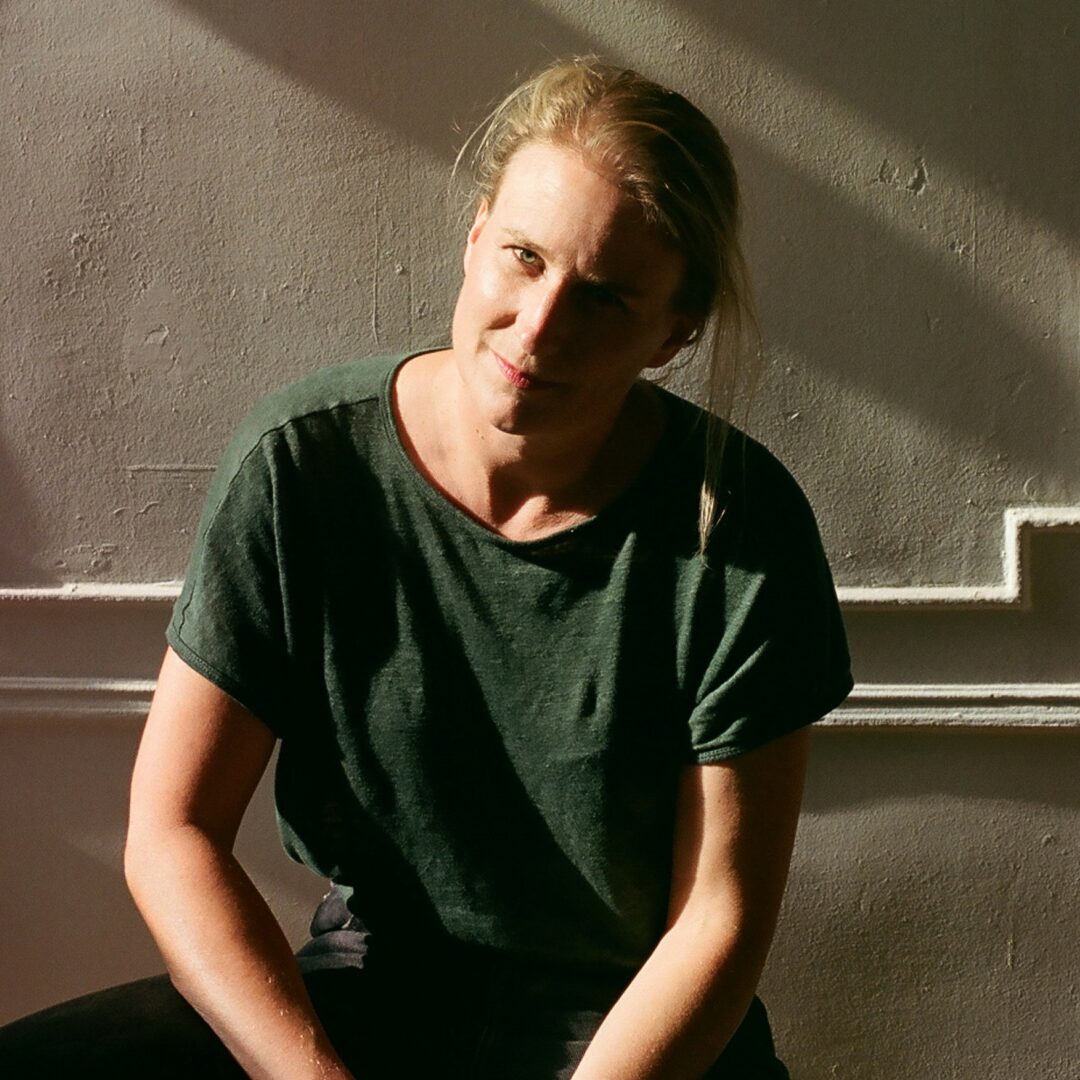We’re excited to introduce you to the always interesting and insightful Chantal Meng. We hope you’ll enjoy our conversation with Chantal below.
Chantal, thank you so much for making time for us. We’ve always admired your ability to take risks and so maybe we can kick things off with a discussion around how you developed your ability to take and bear risk?
Risk-taking has been part of my life for as long as I can remember. Growing up, I might have been a bit braver than most—maybe because my brother was the anxious one, and I felt like I had to balance things out. But honestly, I’ve always been curious, and I’ve loved pushing boundaries, even as a kid.
I will admit that there have been numerous instances when I considered the possibility of reducing the number of risks I take, as the process can be quite exhausting.
I left home at the age of 15, and since then, taking risks has significantly shaped who I am today. At 25, I founded my own businesses—a design studio and an independent art space—both of which continue to thrive. After nearly a decade of building them up, I made the tough decision to leave it all behind and move to London for graduate school as a first-generation academic. Subsequently, I relocated to New York, completed my PhD, and am now teaching here as a professor. While this journey may sound seamless, I assure you it was far from easy.
Each step felt like a leap into the unknown, but the risks I took opened doors I never imagined existed. Even when things didn’t go as planned, the growth and lessons I gained were invaluable. Failure is always a possibility, and I have experienced my share of setbacks along the way. However, as Samuel Beckett famously stated, ‘Fail again. Fail better.’
I had limited financial support throughout my journey; for two years, I lived on a boat in London to minimize costs—perhaps a reflection of my determination, as once I set my mind to something, I see few obstacles. This tenacity has propelled me forward. There is a common misconception that taking risks inevitably leads to loss; in reality, remaining too comfortable is the greater danger, as it can cause stagnation. It is important to acknowledge that this perspective exists within the context of privilege.
In retrospect, taking risks has allowed me to grow and has led to richer experiences and opportunities I would not have otherwise encountered. It’s disheartening to see how fear holds people back today, especially those in leadership roles. Courage is essential for tackling significant issues like social justice and climate change. I wish more people were willing to take risks. Personally, I have never regretted the risks I took; in fact, they have been the most rewarding aspects of my life.
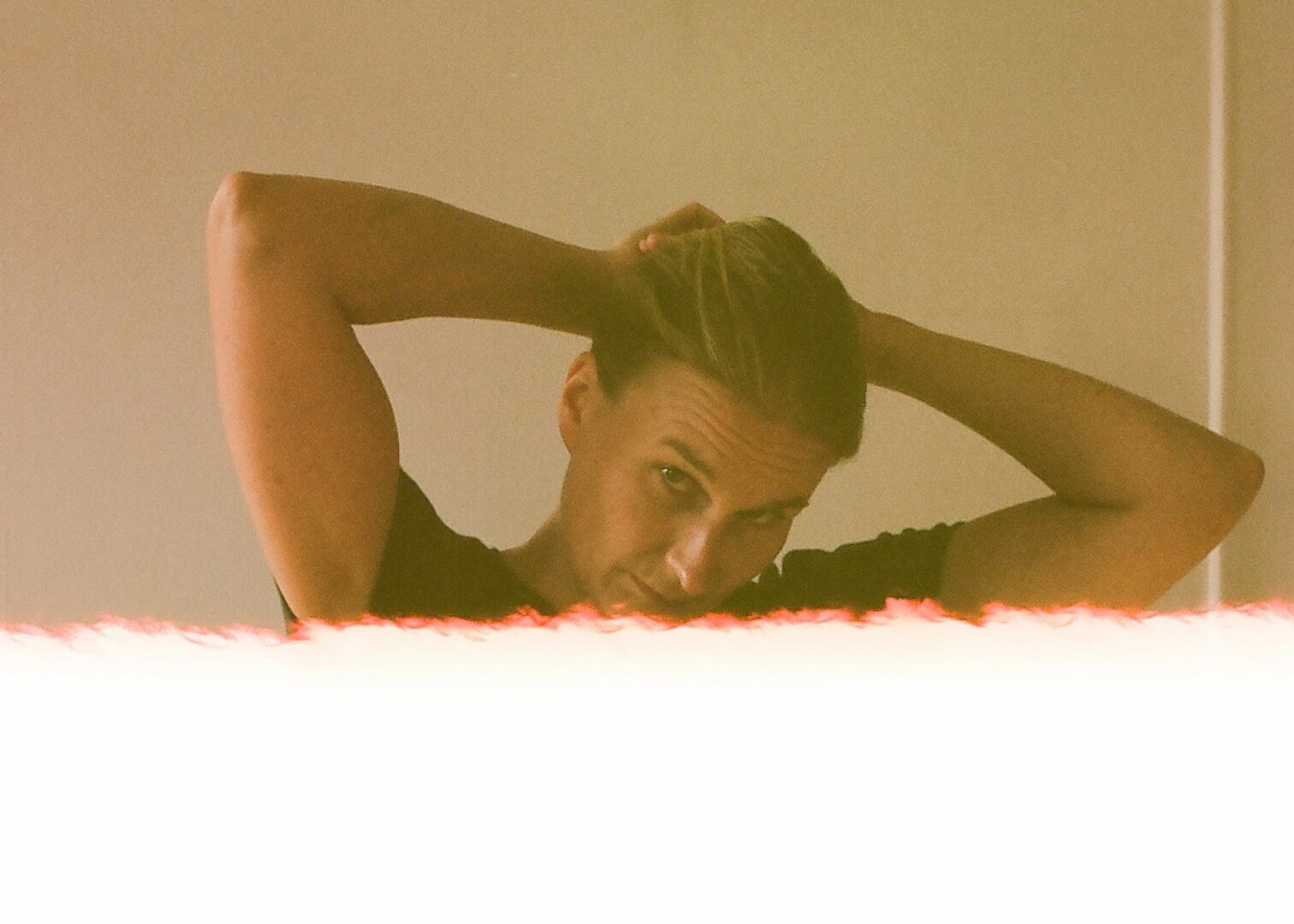
Appreciate the insights and wisdom. Before we dig deeper and ask you about the skills that matter and more, maybe you can tell our readers about yourself?
From my childhood zines about elephants, crafted on a black-and-white copier in my mum’s flower shop, to my role as co-founder of the design studio “POL” and the art space “Grand Palais” both in Bern, Switzerland, I have dedicated myself to researching the interplay of light and darkness in the urban night and raising awareness about light pollution. Over the past decade, my art and research have centered on the perception and loss of darkness in these settings.
My recent projects—including the publications Shadow Typology and Good Night, the collaborative Night Drawing project, and my exhibition Shades After Dark—delve into how artificial light shapes our perceptions and experiences of the nocturnal landscape, encouraging viewers to question the often harsh representations of urban nighttime. Through photography, drawing, performance, and artist books, I aim to expand visual dimensions and challenge habitual thinking while inviting public engagement in projects like Night Drawing, where participants sketch the unseen aspects of the urban night. As a professor, I emphasize innovative research methodologies, weaving creativity into the academic discourse of art and culture, thereby fostering a deeper understanding of the aesthetics and imaginative potential of our surroundings.
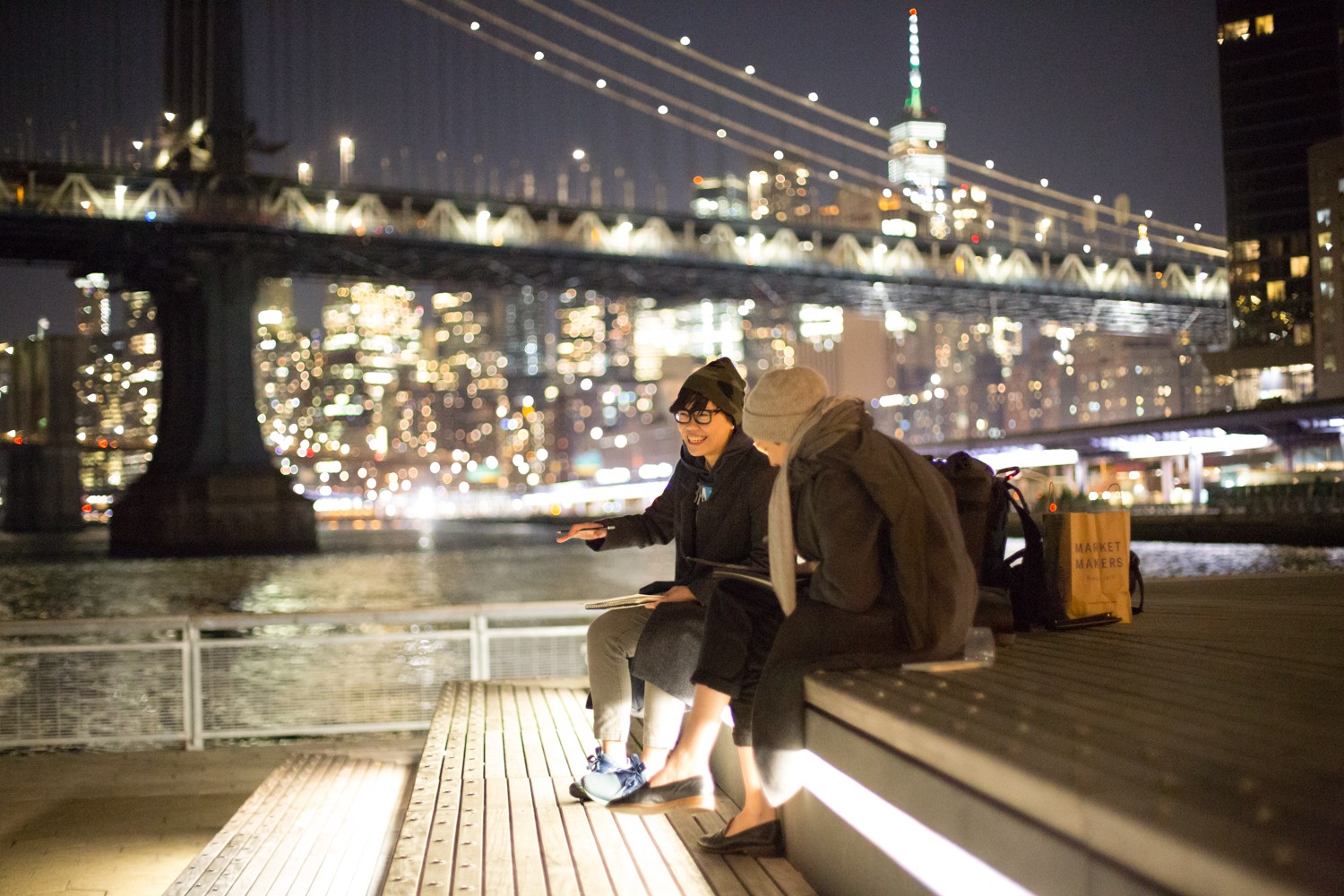
There is so much advice out there about all the different skills and qualities folks need to develop in order to succeed in today’s highly competitive environment and often it can feel overwhelming. So, if we had to break it down to just the three that matter most, which three skills or qualities would you focus on?
Looking back, I’d say three qualities stood out on my journey: being fearless and curious, being a solid communicator and leader, and having a knack for creativity with a focus on exploring new ways of seeing.
First, my courage and curiosity have pushed me to take risks and explore the unknown. For anyone starting out, I encourage you to embrace these traits. Don’t get bogged down by norms or stereotypes; instead, look at the world from different angles. Challenge yourself—try turning things upside down, like doing a handstand or climbing a tree.
Second, my communication and leadership skills have helped me connect with people and build strong networks, friendships, and collaborations around the globe. Engaging with others can lead to inspiring insights and opportunities, so cultivate these relationships with care. Listening is also essential—really listen to others. I recommend checking out Peter Fischli and David Weiss’s work, How to Work Better; learn it by heart!
Finally, my creative side drives me to find innovative ways to express myself and advance research methodologies and education. To boost your creativity, mix it up—try different mediums and never be afraid to experiment. Train yourself to think critically and ask questions, but don’t shy away from new experiences.
In sum, cultivate passion, but also nurture compassion and empathy. Along the way, don’t forget to find joy and celebrate the little things—we often forget to appreciate them. Most importantly, have faith in yourself, take risks, and be bold. Your journey is uniquely yours, and these qualities will help you grow, discover new things, and connect with wonderful people.
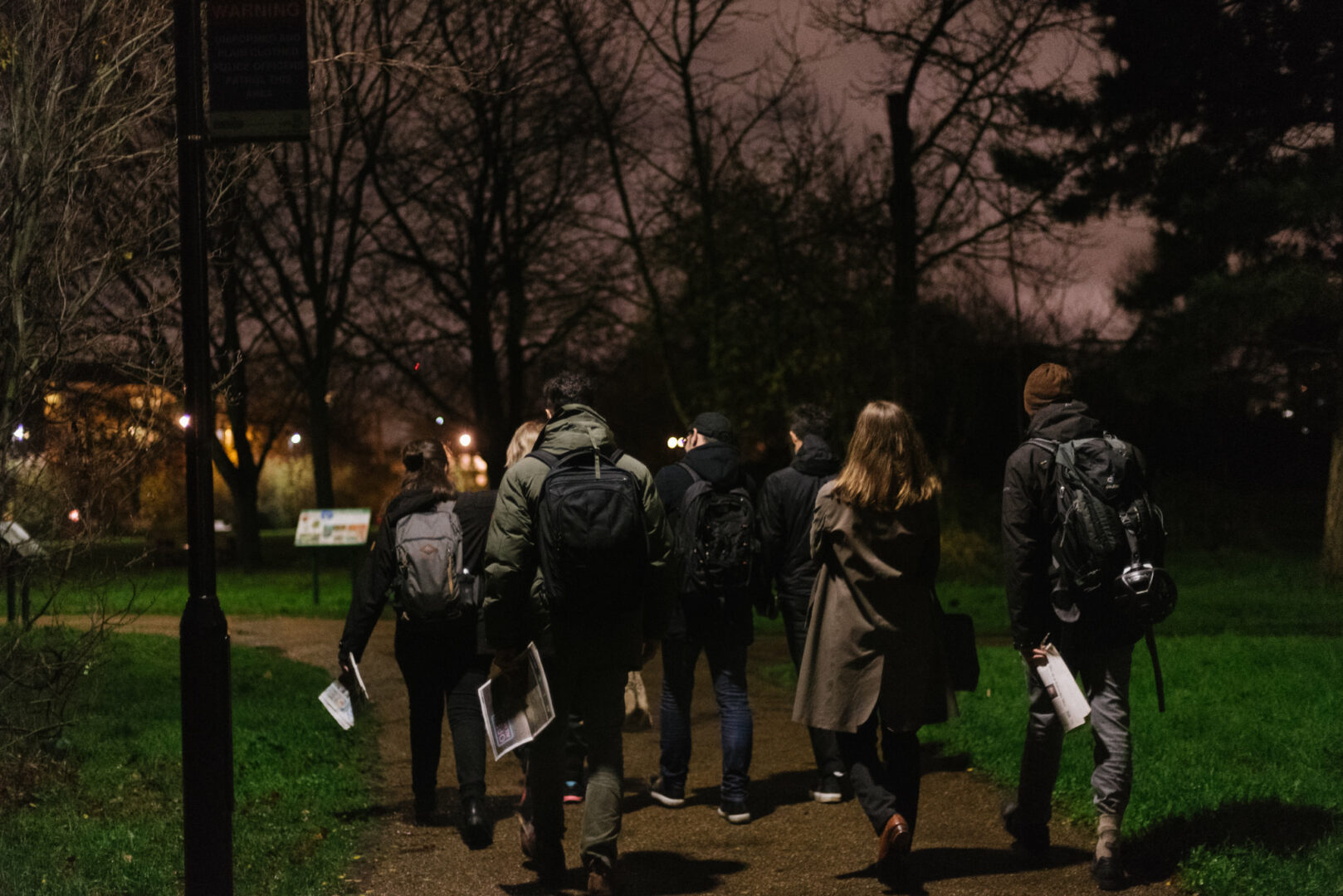
One of our goals is to help like-minded folks with similar goals connect and so before we go we want to ask if you are looking to partner or collab with others – and if so, what would make the ideal collaborator or partner?
I love building things—both literally and metaphorically—and believe that great collaborations lead to amazing outcomes. If you’re interested in teaming up, feel free to reach out. I’m currently working on bringing my bedtime story, Good Night, to the stage and am looking for a theater producer or director, as well as a venue. Additionally, if you have a project that needs a creative director or simply want to exchange ideas, I’d be thrilled to connect.
Join me for Let’s Night Draw! Follow the events @nightdrawin and participate in one of the upcoming sessions in New York.
In short, I’m always on the lookout for creative souls and innovative thinkers to collaborate with. I love working in a team, both in and outside of academia, and I’m excited to explore new ideas and projects together. Stay wild, stay weird—one love.
Contact Info:
- Website: https://www.urbandarkness.net
- Instagram: https://www.instagram.com/chantalmeng
- Linkedin: https://www.linkedin.com/in/chantal-meng
- Other: www.nightdrawing.com
www.chantalmeng.com
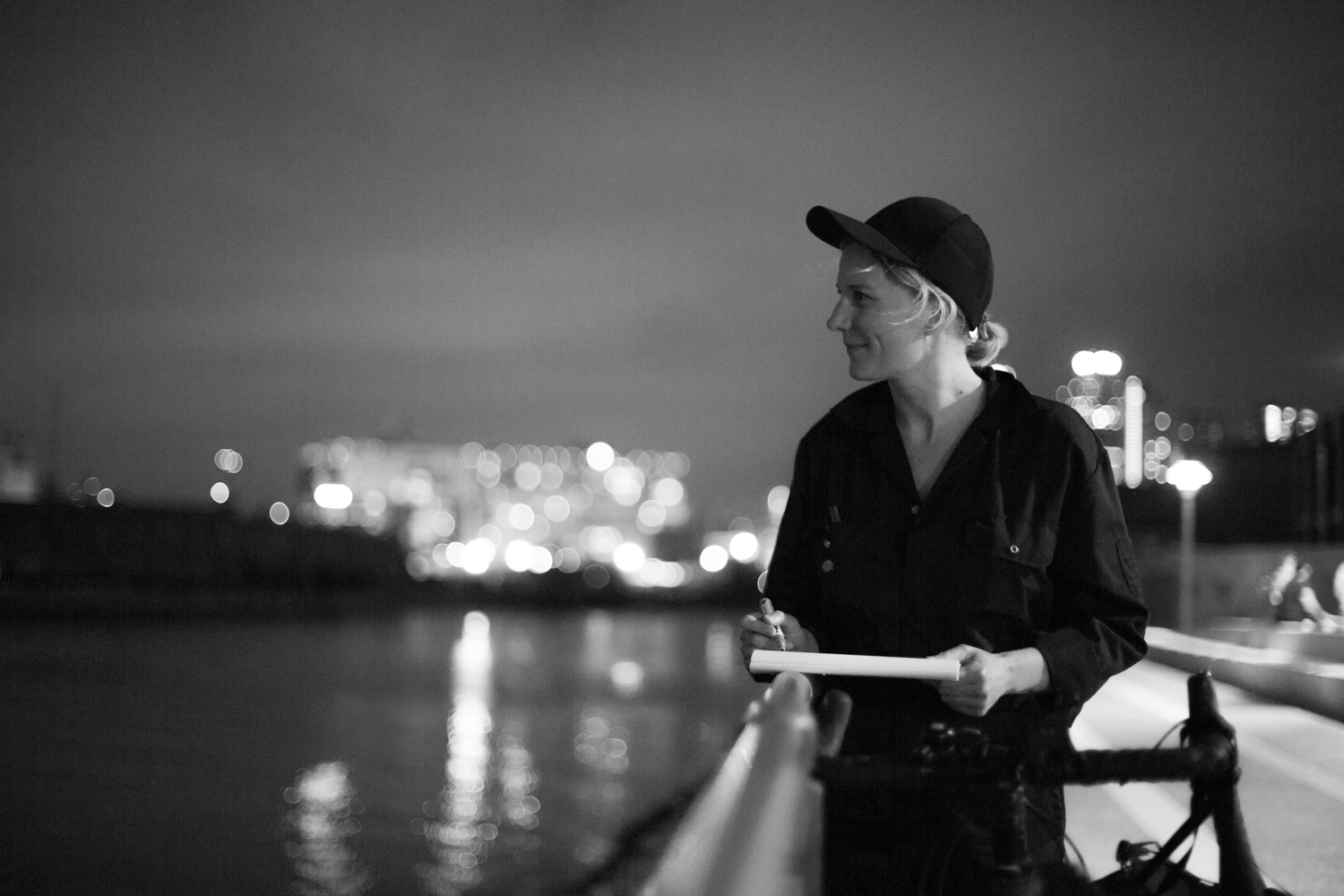
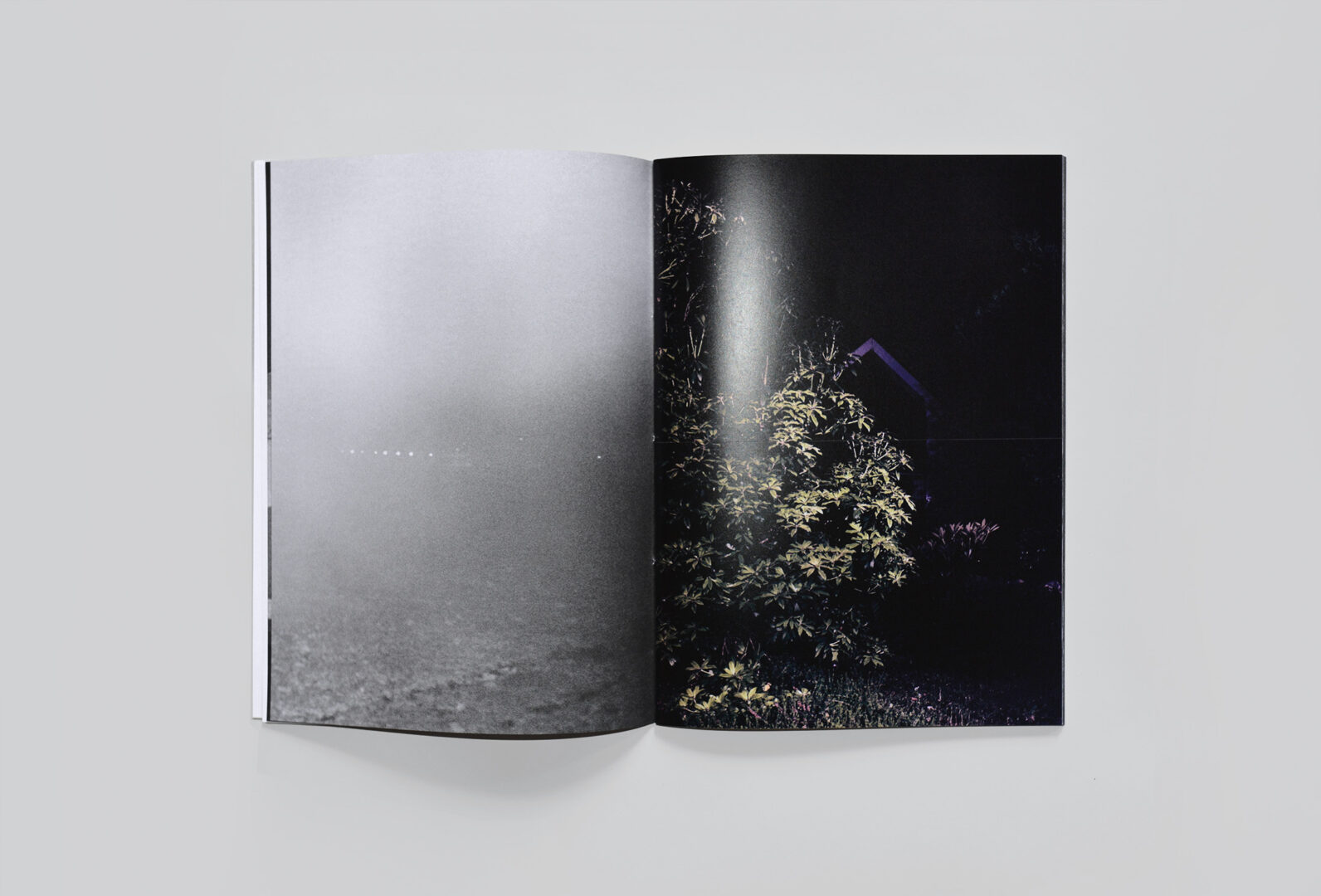
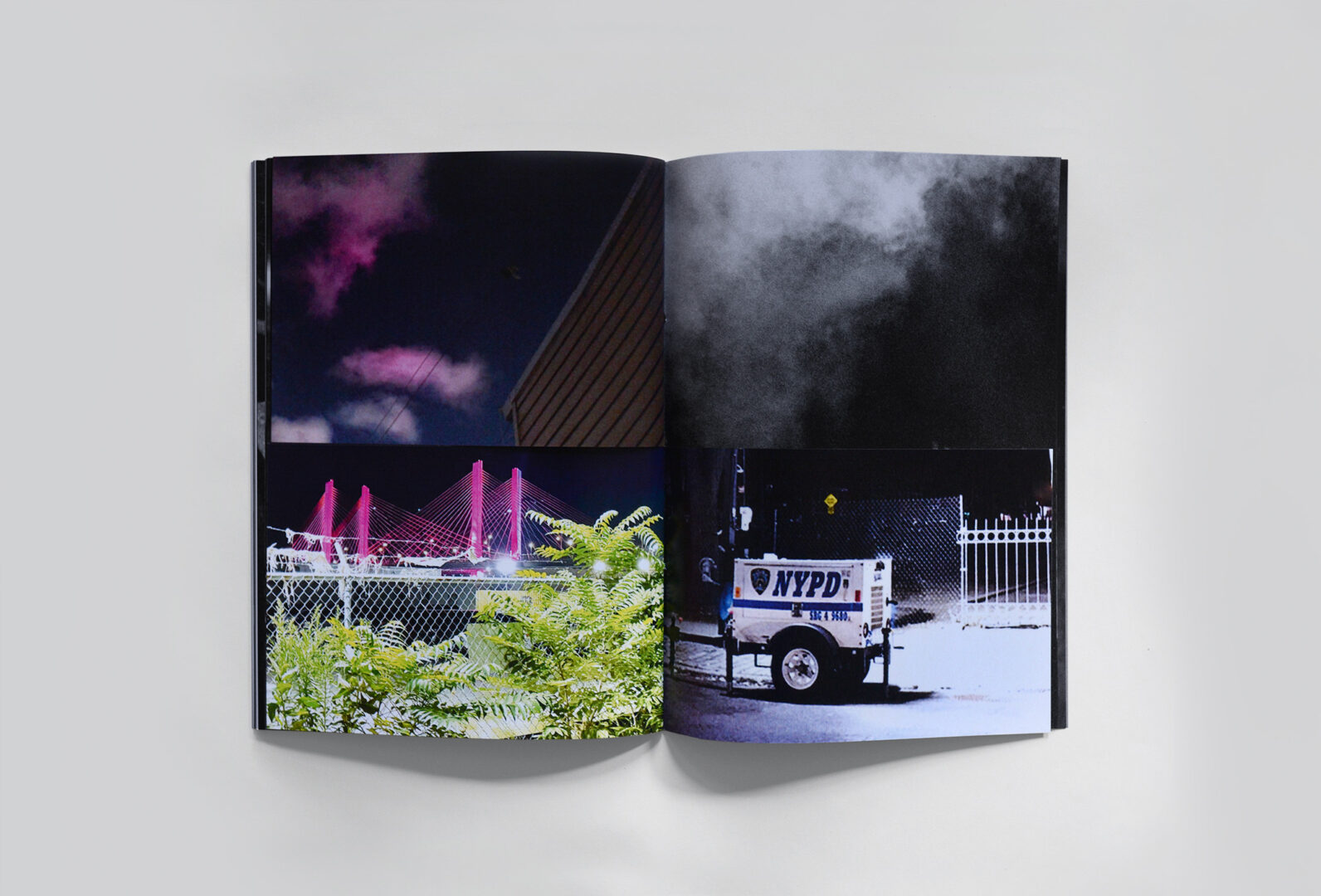
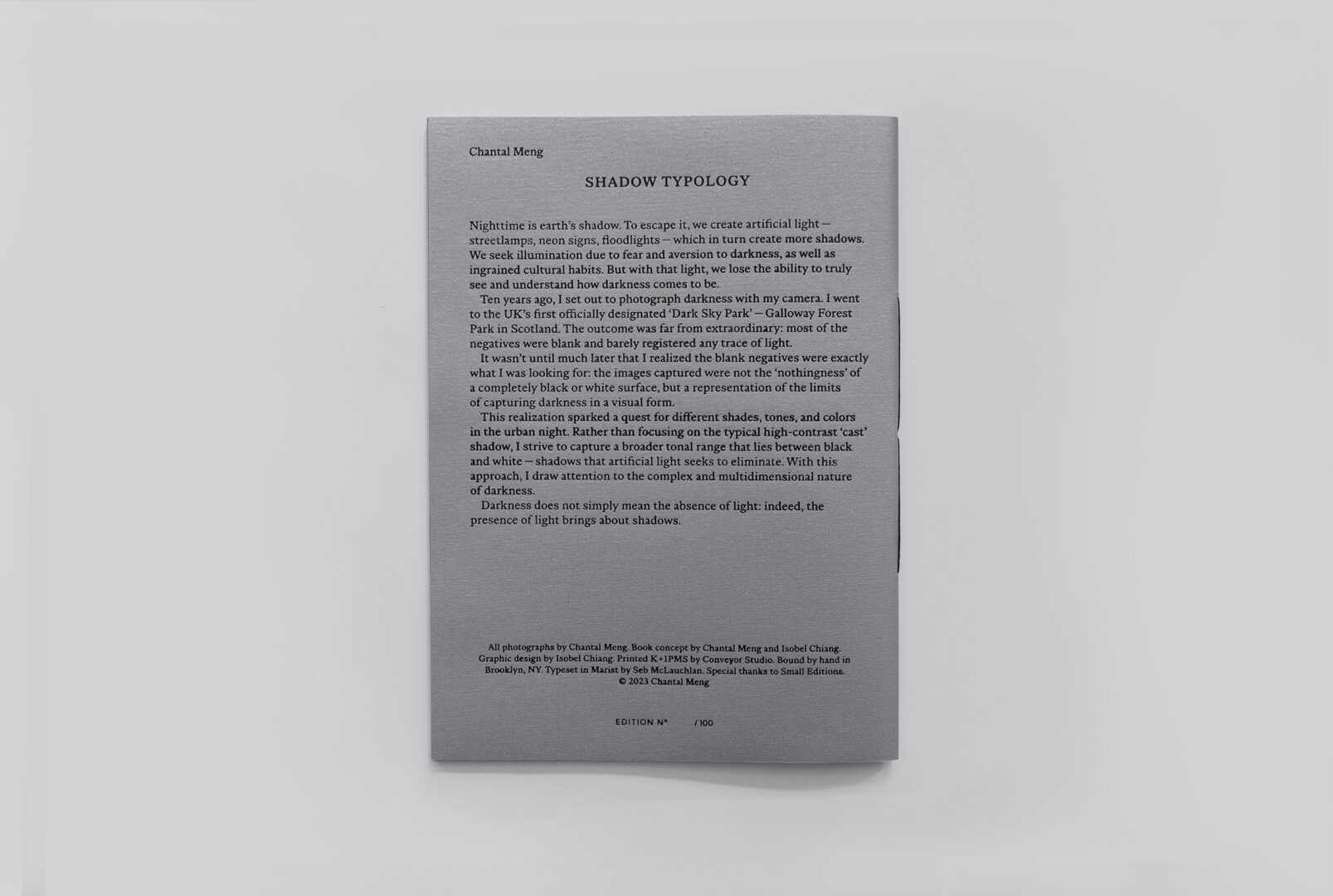
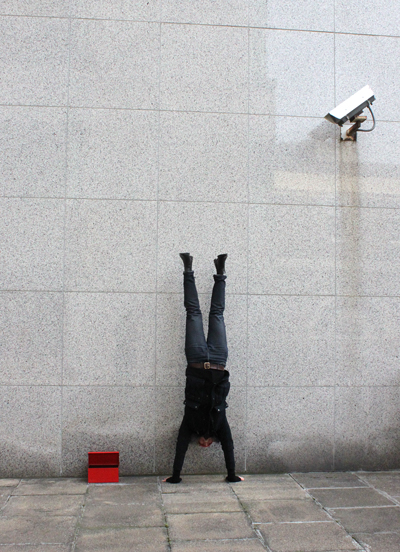
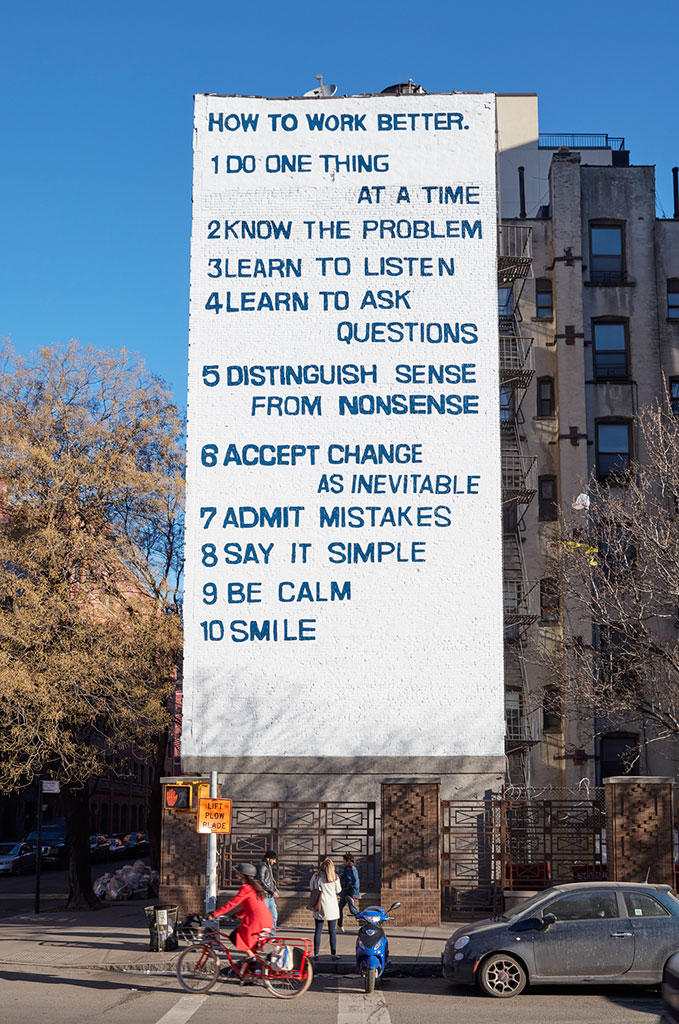
Image Credits
1) Self-portrait I / Photo © Chantal Meng
2) Self-portrait II / Photo © Chantal Meng
3) Night Drawing Event / Photo © Brandon Perdomo
4) Night Drawing Event / Photo © Lucy Parakhina
5) Night Drawing Event / Photo © Brandon Perdomo
6) Book “Shadow Typology”, Chantal Meng / Photo © Isobel Chiang
7) Book “Shadow Typology”, Chantal Meng / Photo © Isobel Chiang
8) Book “Shadow Typology”, Chantal Meng / Photo © Isobel Chiang
9) Self-portrait III / Photo © Chantal Meng
10) “How To Work Better”, © Peter Fischli & David Weiss, New York, 2016
so if you or someone you know deserves recognition please let us know here.

